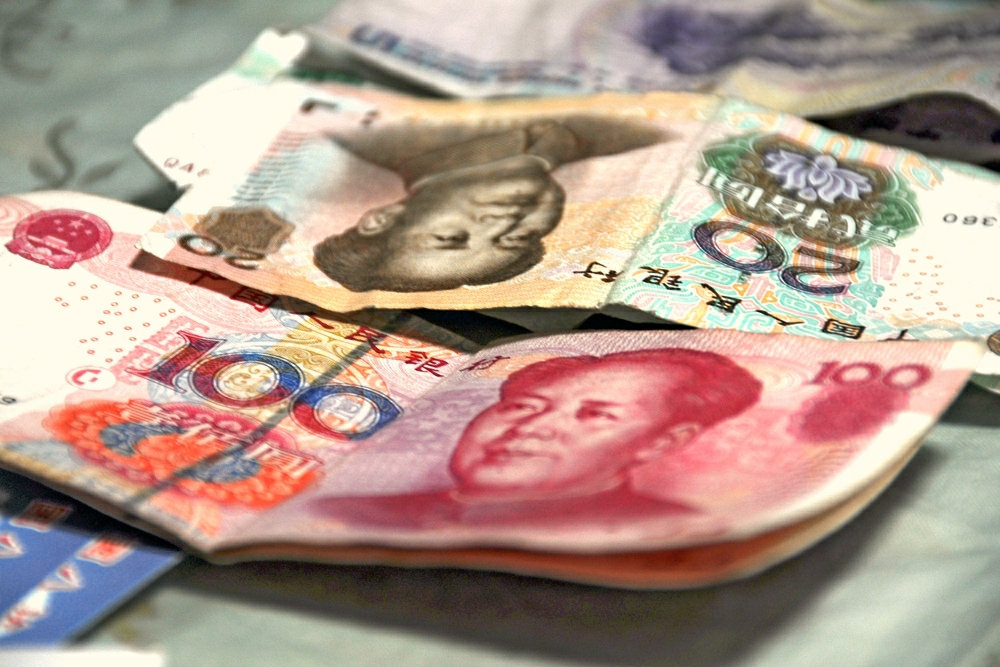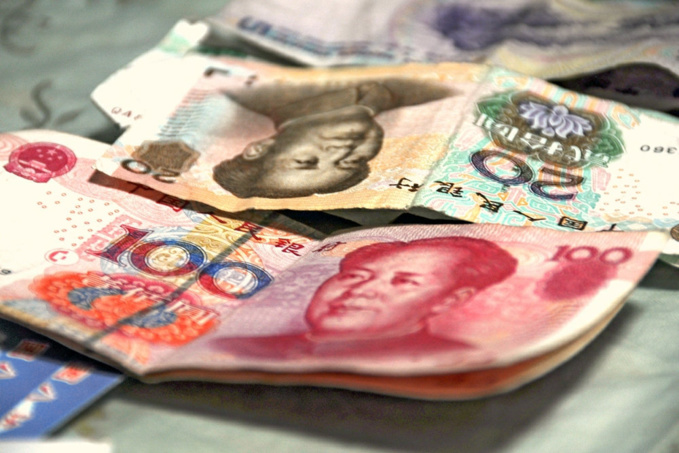Alas, the complete victory is still far away. After the devaluation of the yuan in 2015, analysts expected tremendous pressure on foreign exchange reserves, as well as on the exchange rate, in the foreseeable future. Back in January, when the US Federal Reserve tightened its monetary policy. Then, China's foreign exchange reserves touched the bottom, reaching their lowest level since 2011. Many confidently asserted that the growing dollar could hit China hard. However, then something funny happened. Despite the fact that the Federal Reserve has already raised interest rates 3 times since December, the American currency has since fallen by 8.4% - significantly lower than many world currencies. This, in turn, led to the growth of the yuan and allowed the People's Bank of China to somewhat strengthen foreign exchange reserves. In addition, the Chinese government interfered in the situation quite decisively. The authorities sharply limited the outflow of capital in all directions, threatening to fine investors in real estate and directly prohibiting Chinese firms from making acquisitions abroad.
Analysts suggest that the People's Bank of China has conducted several major interventions in the markets to hold the RMB rate within the specified range. The bank also introduced new measures of countercyclical regulation, meant to reduce the renminbi’s volatility against the US dollar. An extensive program aimed at making the renminbi a major global currency had to be almost completely rolled up. It resulted in foreign exchange reserves and strengthening of the yuan, yet the basic economic conditions in the country are still the same.
Chinese citizens are still trying to withdraw money abroad. They are buying real estate around the world. This is not surprising - there are almost no promising investment opportunities on the domestic market, and prices for many Chinese real estate facilities are very high. Corporations are aspiring to withdraw capital. They are using any means to obtain capital in China and invest it in other markets: repatriation of profits, mergers and acquisitions or joining the government's infrastructure plan "One belt and One Road".
Strict regulation caused official foreign investment fall by 67%; the ratio of import bank payments to customs imports, which reached its lower limit last year, is gradually increasing, which indicates a disguised outflow of capital. There is no point in "letting go" the yuan, when it has only reached stability through all these measures.
Before considering the issue of liberalization of monetary policy, China needs to understand the reasons why companies and people are trying to raise capital abroad. Most wealthy Chinese citizens hold capital in assets such as real estate, which are still very expensive by world standards, and their desire to capitalize on investment for real estate investment abroad is understandable.
The government should make more efforts to keep the course stable, including by suppressing speculation in the real estate market. To keep corporate money in the country is likely to be more difficult. While China suffers from overproduction and vague regulation, and its markets are oversaturated with capital, enterprises will continue to seek opportunities abroad. The state has to fulfill its promises to reduce the level of credit and depoliticize financial markets.
At that, the restrictions that China has imposed so far only prevent it from balancing the flow of capital: foreign investors, not accustomed to opaque conditions, have lowered direct investment in China by more than five percent since the beginning of the year.
Of course, China will have to deregulate the yuan sooner or later. Yet it still has to deal with the problems, because of which such measures were introduced.
source: bloomberg.com
Analysts suggest that the People's Bank of China has conducted several major interventions in the markets to hold the RMB rate within the specified range. The bank also introduced new measures of countercyclical regulation, meant to reduce the renminbi’s volatility against the US dollar. An extensive program aimed at making the renminbi a major global currency had to be almost completely rolled up. It resulted in foreign exchange reserves and strengthening of the yuan, yet the basic economic conditions in the country are still the same.
Chinese citizens are still trying to withdraw money abroad. They are buying real estate around the world. This is not surprising - there are almost no promising investment opportunities on the domestic market, and prices for many Chinese real estate facilities are very high. Corporations are aspiring to withdraw capital. They are using any means to obtain capital in China and invest it in other markets: repatriation of profits, mergers and acquisitions or joining the government's infrastructure plan "One belt and One Road".
Strict regulation caused official foreign investment fall by 67%; the ratio of import bank payments to customs imports, which reached its lower limit last year, is gradually increasing, which indicates a disguised outflow of capital. There is no point in "letting go" the yuan, when it has only reached stability through all these measures.
Before considering the issue of liberalization of monetary policy, China needs to understand the reasons why companies and people are trying to raise capital abroad. Most wealthy Chinese citizens hold capital in assets such as real estate, which are still very expensive by world standards, and their desire to capitalize on investment for real estate investment abroad is understandable.
The government should make more efforts to keep the course stable, including by suppressing speculation in the real estate market. To keep corporate money in the country is likely to be more difficult. While China suffers from overproduction and vague regulation, and its markets are oversaturated with capital, enterprises will continue to seek opportunities abroad. The state has to fulfill its promises to reduce the level of credit and depoliticize financial markets.
At that, the restrictions that China has imposed so far only prevent it from balancing the flow of capital: foreign investors, not accustomed to opaque conditions, have lowered direct investment in China by more than five percent since the beginning of the year.
Of course, China will have to deregulate the yuan sooner or later. Yet it still has to deal with the problems, because of which such measures were introduced.
source: bloomberg.com



















